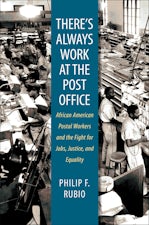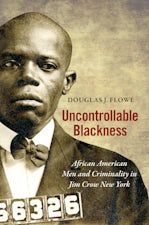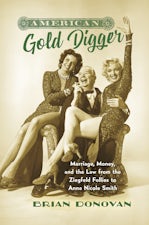White Man’s Work
Race and Middle-Class Mobility into the Progressive Era
By Joseph O. Jewell
210 pp., 6.125 x 9.25, 10 halftones, 3 tables
-
Paperback ISBN: 978-1-4696-7349-3
Published: December 2023 -
E-book EPUB ISBN: 978-1-4696-7350-9
Published: November 2023 -
Hardcover ISBN: 978-1-4696-7348-6
Published: December 2023
Buy this Book
- Paperback $29.95
- Hardcover $99.00
- E-Book $22.99
For Professors:
Free E-Exam Copies
Blending cultural history and historical sociology, Jewell chronicles the continually evolving narratives that linked whiteness with middle-class mobility and middle-class manhood. In doing so, Jewell addresses a key issue in the historical sociology of race: how racialized groups demarcate, defend, and alter social positions in overlapping hierarchies of race, class, and gender. New racist narratives about non-white men occupying middle-class occupations emerged in cities across the nation at the turn of the century. These stories helped to shore up white supremacy in the face of far-reaching changes to the nation's racialized economic order.
About the Author
Joseph O. Jewell is professor of Black studies at the University of Illinois–Chicago.
For more information about Joseph O. Jewell, visit
the
Author
Page.
Reviews
"Jewell’s concise and accessible prose style achieves a rare feat – making
potentially complex themes comprehensible without sacrificing any academic rigour . . . . A cautionary study on the way in which dominant cultures posses the power of narrative-creation in ways that can exclude minority groups from social and economic mobility. Jewell’s book also vividly demonstrates how such attitudes and approaches end up creating boundaries that restrict social change, and reinforce the dominance of one group at the expense of others – a pattern that can have consequences generations into the future."—Ethnic & Racial Studies
"People need this book; at a time when as a nation there is more blending and blurring, people are holding on to white supremacy for many reasons. Jewell engagingly demonstrates how white middle-class people made efforts to sharpen racial lines, especially targeting men of color and mixed-race men during the late nineteenth century."—Elizabeth Higginbotham, University of Delaware
"Jewell weaves together theory and historical narrative, using stories and scandals to illustrate the connection between the brightening and blurring of racial boundaries and the category of the 'middle class' in the late nineteenth century. Each chapter is well written and argued, full of narrative color and detail. This lively and readable text makes a significant contribution to important discussions in sociology and American history." —Brian Donovan, University of Kansas




